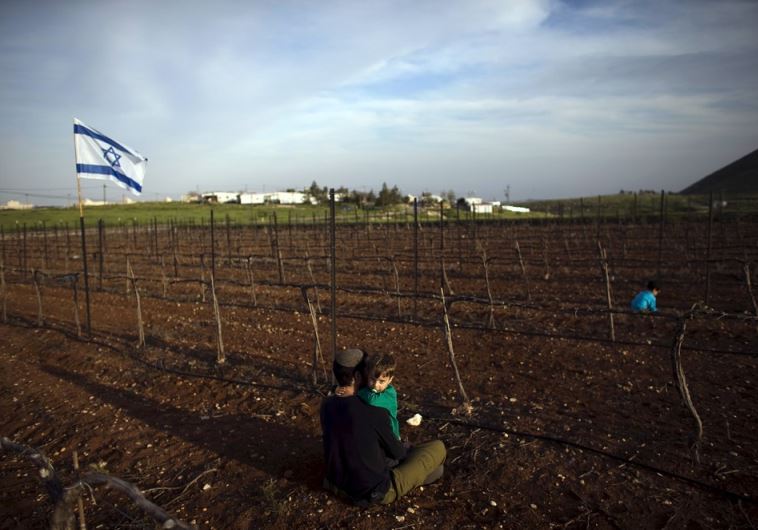Israel steps up efforts to persuade EU to drop settlement product labels
Israeli officials continue to publicly voice their displeasure with the EU.
 A Jewish man holds his son at a vineyard belonging to Mitzpe Kramim, east of Ramallah in the West BankUpdated:
A Jewish man holds his son at a vineyard belonging to Mitzpe Kramim, east of Ramallah in the West BankUpdated: